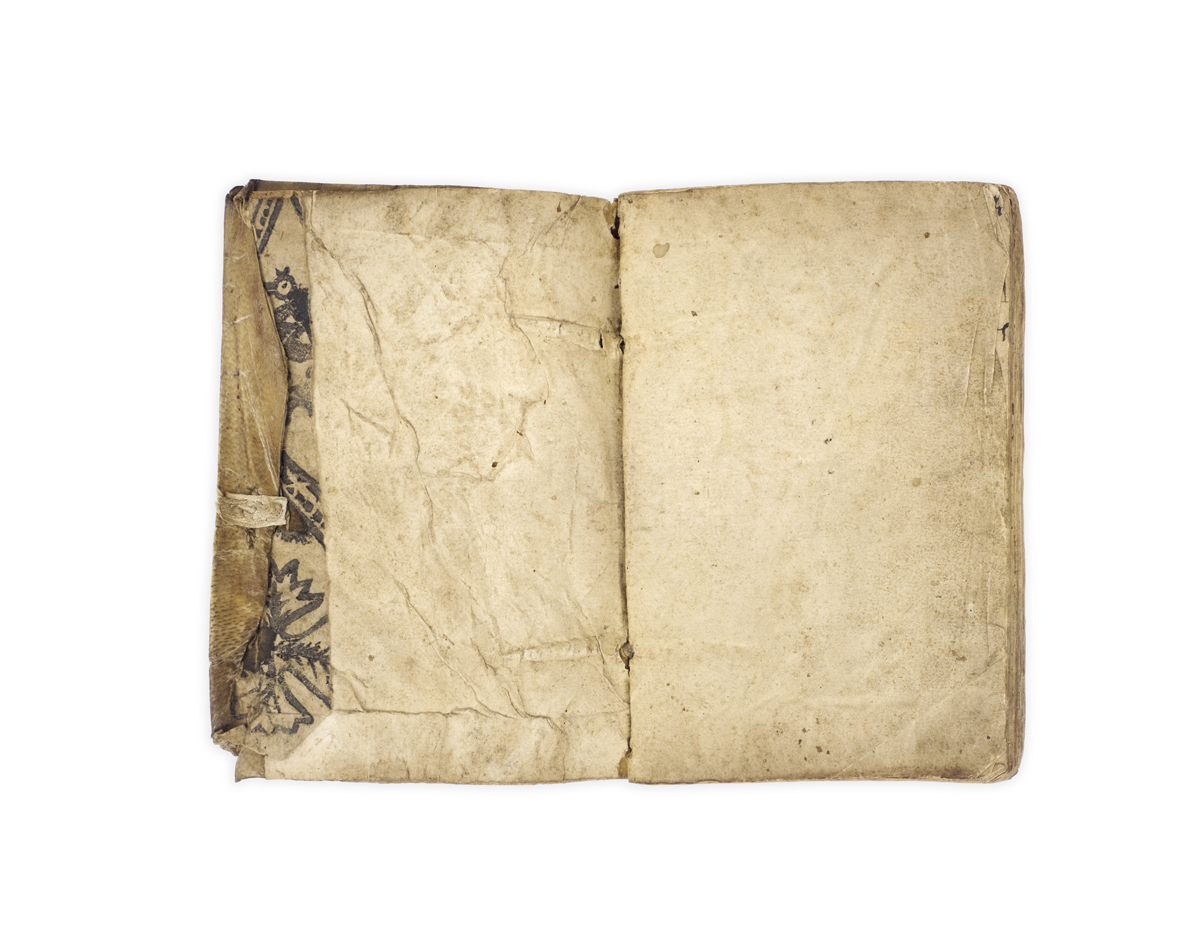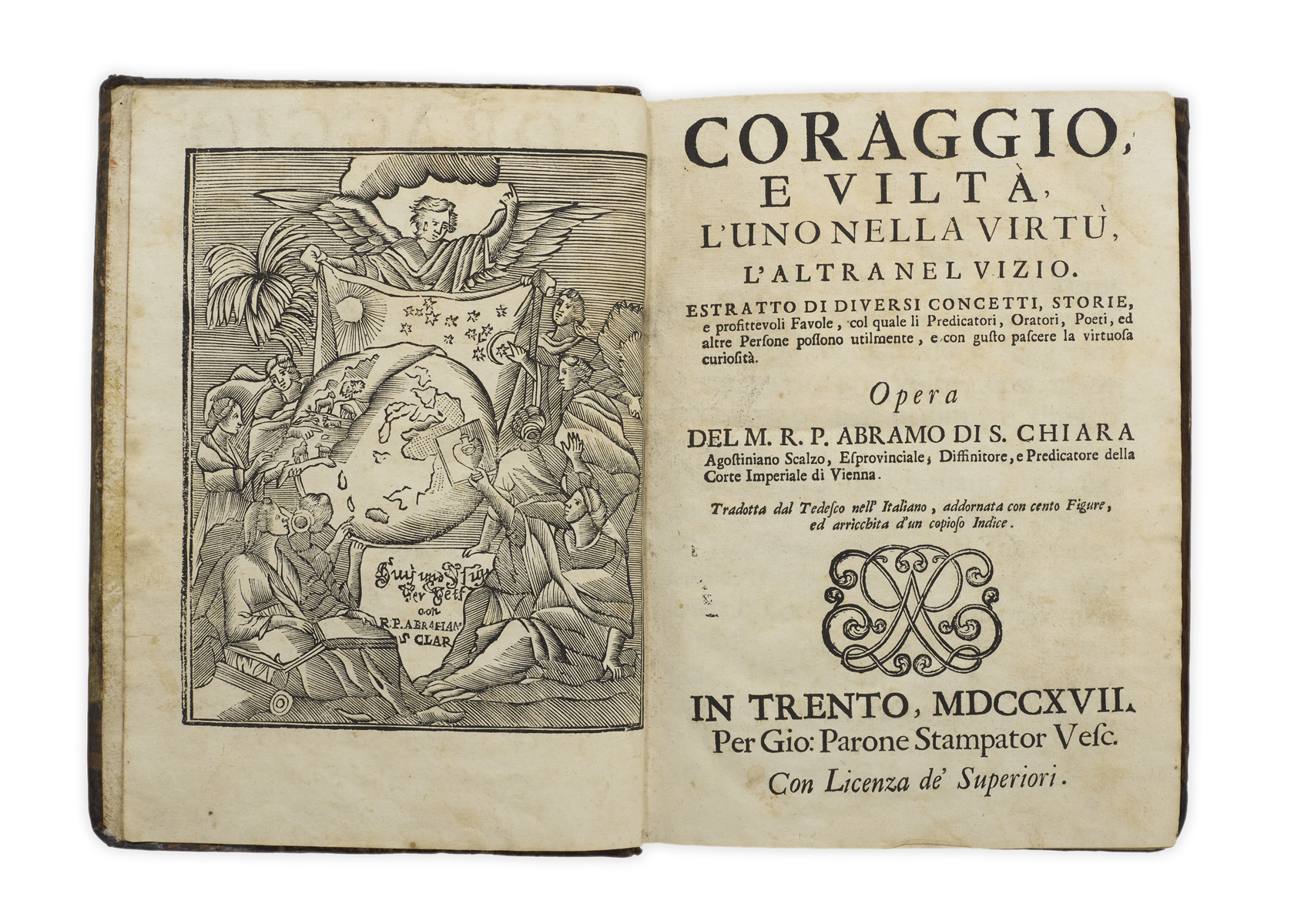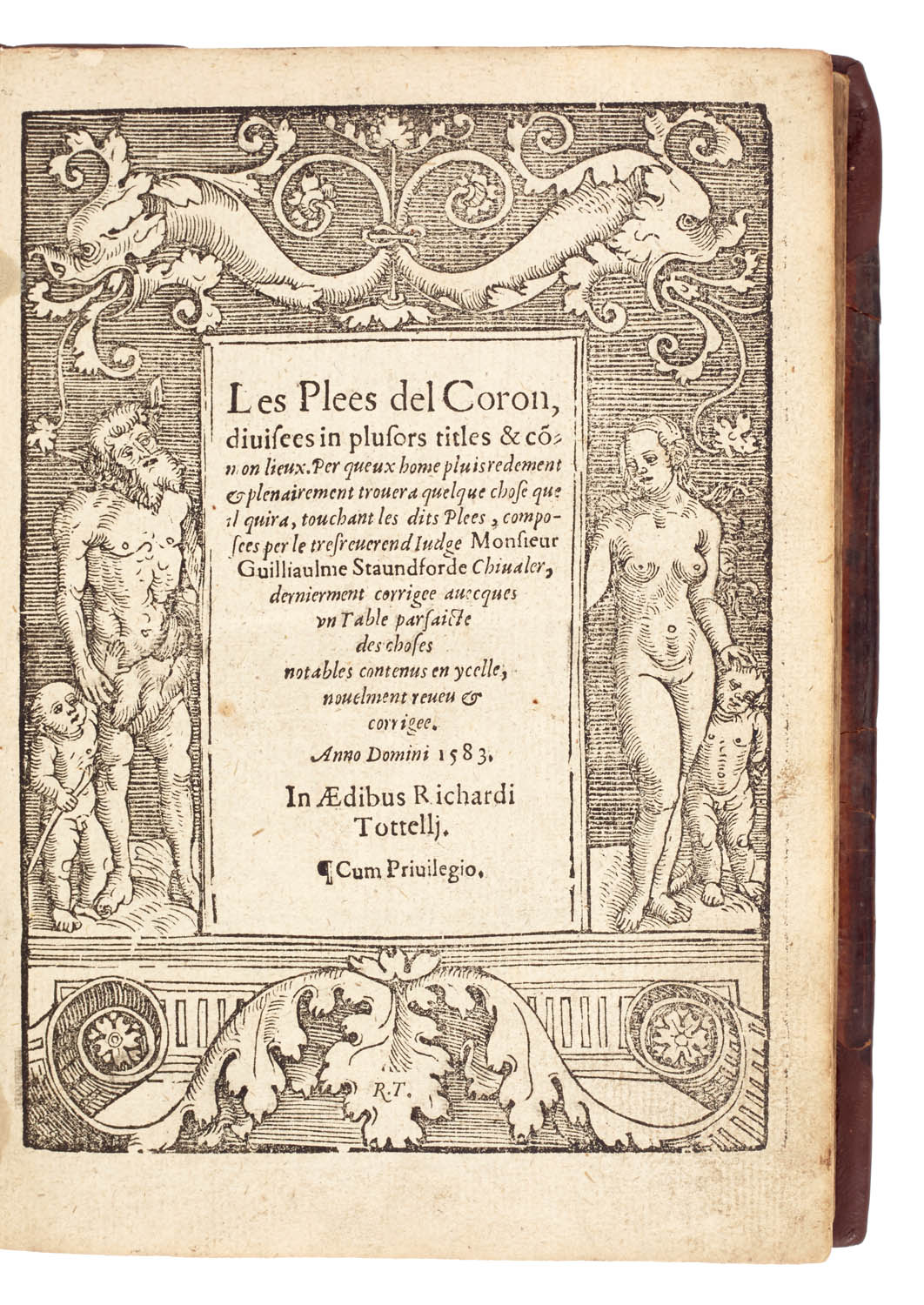
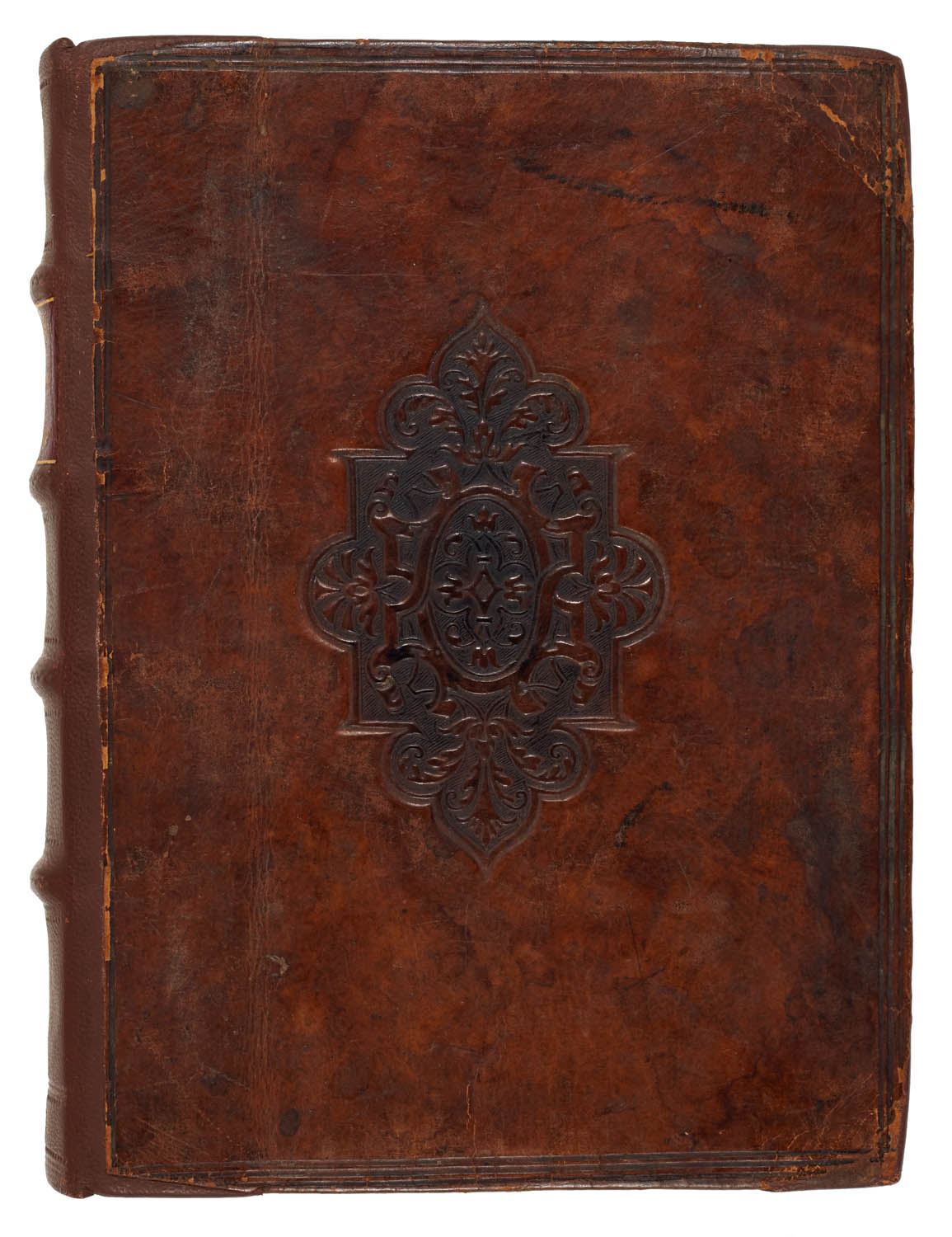
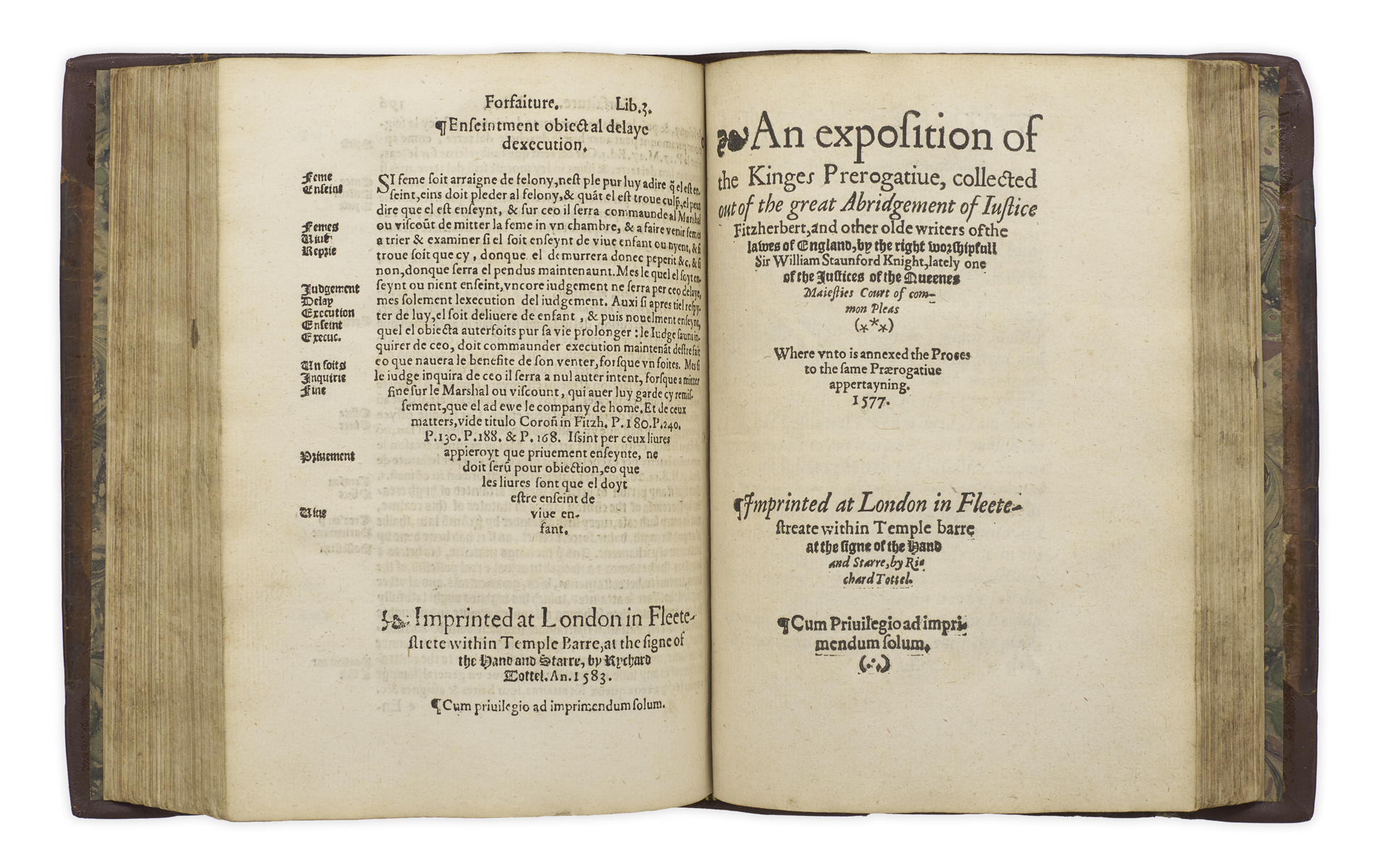
THE FIRST BOOK ENTIRELY ON CRIMINAL LAW
STAUNFORD [Stanford], William, Sir.
Les Plees del Coron, Divisees in Plusors Titles & Comon Lieux. Per Queux Home Pluis Redement & Plenairement Trover a Quelque Chose que Il Quira, Touchant les Dits Plees, Composees per le Tres Reuerend Iudge Monsieur Guilliaulme Staundforde Chiualer, Dernierment Corrigee Auecques un Table Parfaicte des Choses Notables Contenus en Ycelle, Nouelment Reveu & Corrigee.
[London], Richard Tottell, 1583.
[Bound with:]
—. An Exposition of the Kinges Prerogative, Collected Out of the Great Abridgement of Iustice Fitzherbert, And Other Old Writers of the Lawes of England. Whereunto is Annexed the Proces to the Same Praerogative Appertaining. [London, Richard Tottell, 1577 (colophon).]
Two works bound in one volume, small 4to, ff. [xii], 196; [i], [5]-85; woodcut allegorical frontispiece to the first work, woodcut decorated initials to both works; very light toning, but very good copies, bound together in contemporary calf, rebacked, sides triple-filleted in blind with blind-stamped arabesque centrepieces; some contemporary annotations throughout.

Added to your basket:
Les Plees del Coron, Divisees in Plusors Titles & Comon Lieux. Per Queux Home Pluis Redement & Plenairement Trover a Quelque Chose que Il Quira, Touchant les Dits Plees, Composees per le Tres Reuerend Iudge Monsieur Guilliaulme Staundforde Chiualer, Dernierment Corrigee Auecques un Table Parfaicte des Choses Notables Contenus en Ycelle, Nouelment Reveu & Corrigee.
The definitive edition, and that owned by Thomas Jefferson, of the first book devoted entirely to criminal law. First published posthumously in 1557 and based on Bracton and the Year Books, Les Plees deals in turn with offences, jurisdiction, appeals, indictments and defences. The third part is devoted to trials and convictions.
‘In 1543, according to a note in his fee book, Stanford entered the service of Lord Chancellor Wriothesley, who is known to have been his patron. […] Notwithstanding the fall of Wriothesley, and his religious leanings towards Rome, in November 1552 he was created serjeant-at-law […] On 19 October 1553 Mary I appointed him one of the queen’s serjeants, and in that capacity he undertook with due fairness, but unsuccessfully, the prosecution of Sir Nicholas Throckmorton in 1554. […]
‘The greatest of his own books was Les plees del coron (1557), a textbook on criminal law. It was heavily based on the material gathered in the title ‘Corone’ in Fitzherbert’s Graunde Abridgment, arranged in chapters, in the form of a continuous text, with passages quoted from Glanvill, Bracton, and relevant acts of parliament. It was the first legal textbook in England to adopt the practice of citing specific authorities for every proposition, and as such had a major influence on legal literature, though it lacked the elemental clarity of Littleton’s Tenures, which was written by a judge of the same court a century earlier.
‘Stanford’s other principal book was his Exposicion of the Kinges Prerogative … concerned with the property rights of the crown rather than with constitutional principles … Fulbeck justly said of Stanford’s books in 1600 that they were of: “force and weight, and no common kind of stile; in matter none hath gone beyond him, in method none hath overtaken him. And surely his method may be a law to the writers of the law which shall succeed him” (Fulbeck, pp. 72-3). ‘Both works enjoyed several editions down to 1607, when they were printed together’ (J.H. Baker, in ODNB).
ESTC S117812, S117820; Beale T490, T496; Holdsworth, History of English Law V, 394; Sowerby, Catalogue of the Library of Thomas Jefferson 1945.
